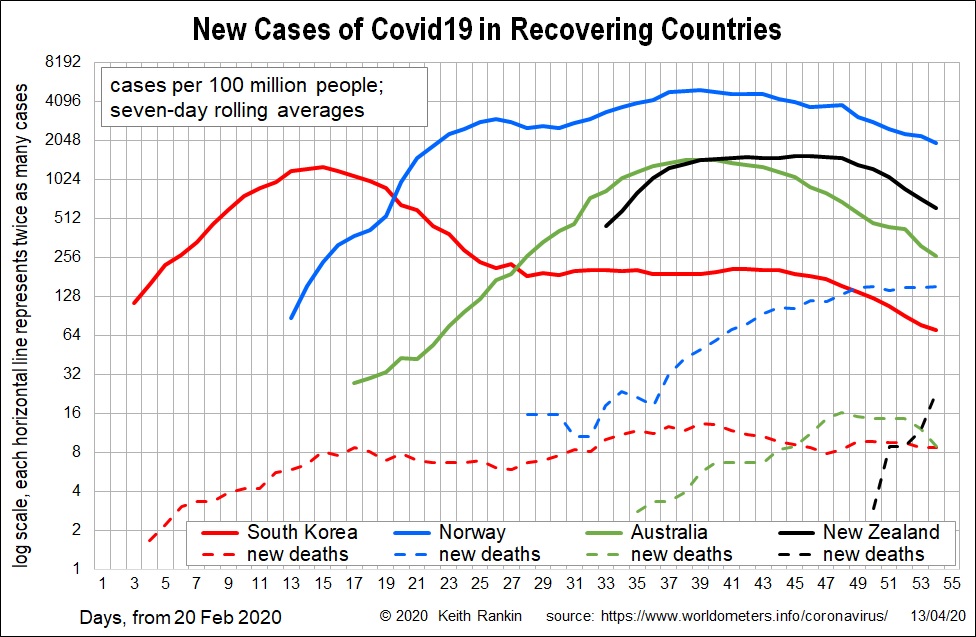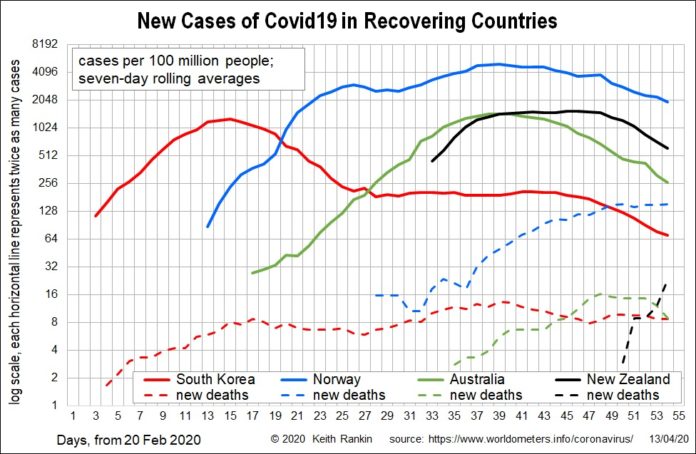
Today’s chart looks at four countries recovering from Covid19: South Korea, Norway, Australia and New Zealand. Except for us (NZ), the other countries started early and are on the ‘finishing straight’ or thereabouts.
Note that this chart uses a smoothing technique; seven-day rolling averages. Thus, for each day shown, the data value represents the average for the week ending on that day.
South Korea shows that cases continue well after the ‘peak’. Further the death peak was four weeks after the case peak. South Korea also shows that the continuance of cases can be managed with effective testing and tracing.
Norway got Covid-19 early and suddenly, affected – like Australia – by Cruise Ship cases. While Norway has really struggled to reduce its case numbers, it has at least maintained an unusually low rate of deaths. Still those deaths are persisting, but should slowly reduce as its long case tail also slowly reduces.
Australia looks particularly hopeful, with a much lower case incidence than Norway, and similar to South Korea’s peak incidence. Deaths in Australia appear to have peaked, ten days after the peak in new cases.
While New Zealand currently has a higher Covid19 incidence than Australia, this largely reflects a ten-day lag with respect to Australia. New Zealand is recovering, much more clearly than, say, Norway. And, while the recent death-average in New Zealand is higher than in Australia (per capita), these death data are also likely to follow Australia with a lag of about ten days.Australia gives New Zealand clear guidelines about how to proceed after New Zealand’s Level Four shutdown. In particular, Australia, in its shutdown has allowed a number of services which are proscribed in New Zealand. New Zealand’s Level Three should not be more restrictive than Australia’s toughest level.
Clearly it is for the Aged Care facilities in both Australia and New Zealand that Level Three rules must be especially tailored. This is our first big economic challenge; meeting the true cost of such facilities. This is a labour intensive industry. In this emergency we have come to understand that many of our most necessary workers are our poorest paid. This should end. The provision of a Basic Universal Income would give these kinds of workers much needed bargaining power; the bargaining power that can allow them to hold out for a living wage and suitable access to safety equipment.
This is a time to value our workers, and to protect them; it is not a time to dispose of our workers by having unnecessarily prolonged restrictions on personal services.





